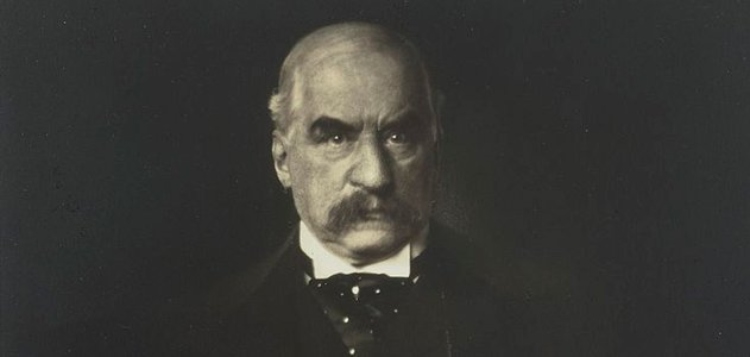John Pierpont Morgan, commonly known as JP Morgan, was a prominent American financier and banker of the late 19th and early 20th centuries. He was born on April 17, 1837, in Hartford, Connecticut, to a wealthy family. Morgan’s father was a successful banker, and he groomed his son to follow in his footsteps. Morgan attended the English High School in Boston and later the University of Göttingen in Germany.
After completing his education, Morgan began working at his father’s banking firm, J.S. Morgan & Co. He soon proved to be a savvy businessman and made a name for himself in the financial world. In 1871, he founded his own banking firm, J.P. Morgan & Co., which became one of the most powerful financial institutions in the world.
Morgan’s financial acumen was legendary. He was known for his ability to restructure failing companies, using his vast wealth to bail them out and turn them into profitable enterprises. He was involved in some of the most significant corporate mergers and acquisitions of his time, including the formation of U.S. Steel, which became the world’s largest steel producer.
Morgan was also a major player in the railroad industry, using his wealth and influence to consolidate numerous small railroads into large, efficient networks. He was instrumental in the creation of the Northern Securities Company, which was a holding company for several major railroads, and which ultimately led to the landmark antitrust case, United States v. Northern Securities Co.
Morgan’s financial power and influence extended beyond the United States. He played a significant role in the financing of several foreign governments, including the British and French governments, during World War I. Morgan also helped to stabilize the financial markets during several major economic crises, including the Panic of 1907.
JP Morgan Was Known as Being Ruthless and Also Generous
However, Morgan’s business practices were not always ethical. He was accused of using his vast wealth and influence to manipulate markets and politicians. He was criticized for his role in the creation of monopolies and for using his power to stifle competition. Morgan’s influence over the American economy was so significant that he was often referred to as the “financial dictator” of the United States.
Despite his reputation as a ruthless businessman, Morgan was also known for his philanthropy. He donated large sums of money to numerous charitable organizations and institutions, including the American Museum of Natural History and the Metropolitan Museum of Art. He also helped to establish several important educational institutions, including the Morgan Library & Museum and the Graduate School of Business at Harvard University.
Morgan died on March 31, 1913, at the age of 75. His legacy as one of the most powerful and influential financiers in American history has endured to this day. The firm he founded, J.P. Morgan & Co., continues to be one of the most prestigious banking institutions in the world, and his impact on the American economy is still felt today.
In conclusion, JP Morgan was a man of immense wealth, power, and influence who played a significant role in shaping the American economy of his time. While he was a controversial figure, he was also a philanthropist who made significant contributions to American culture and education. His legacy as one of the most prominent figures in American financial history will continue to be remembered for generations to come.
© Solana Daily Brief, Inc. All Rights Reserved. This article is for informational purposes only. It is not to be used as legal, tax, investment, financial, or other advice.